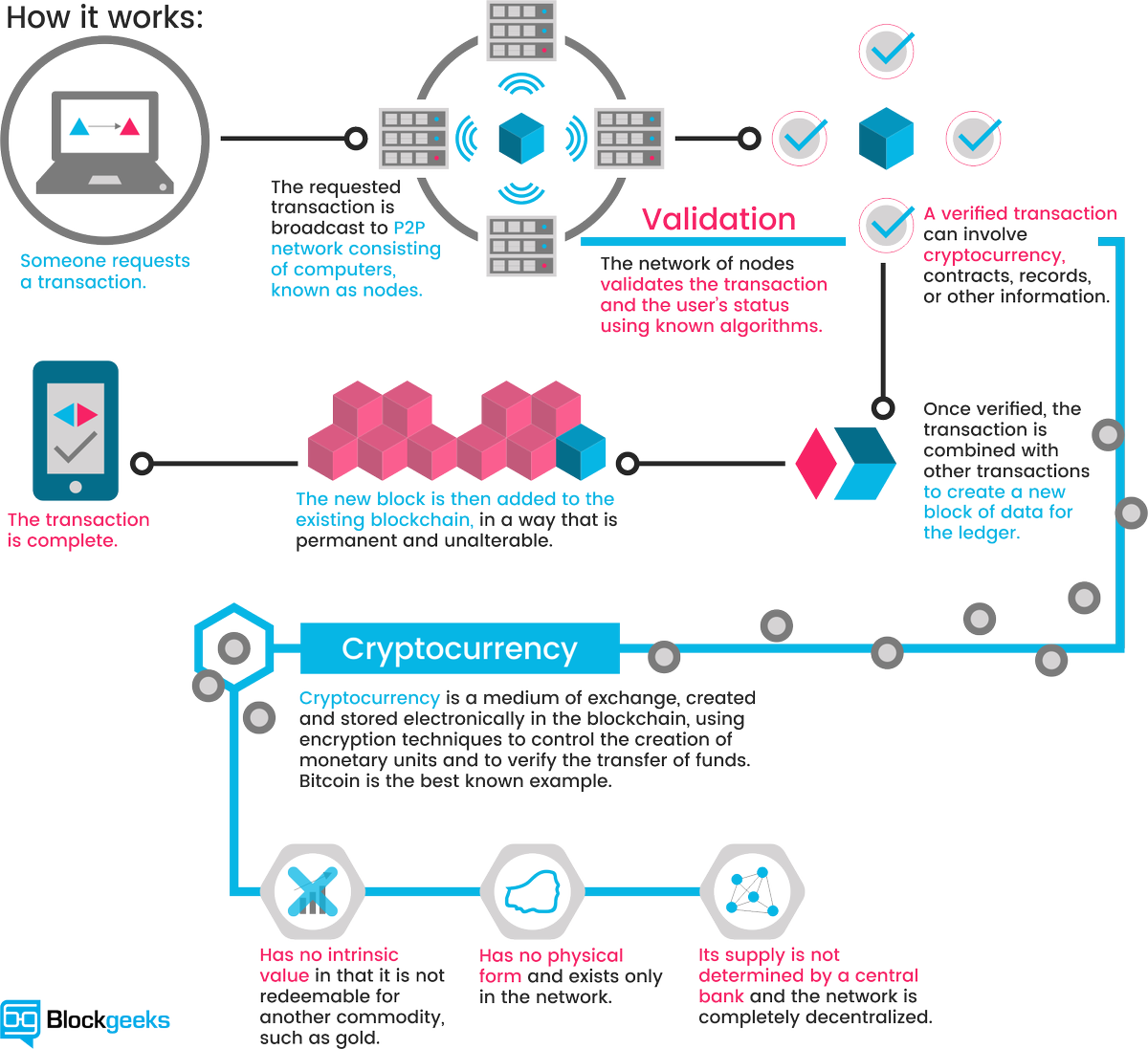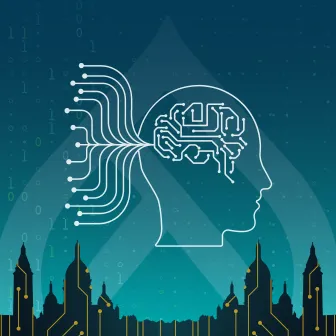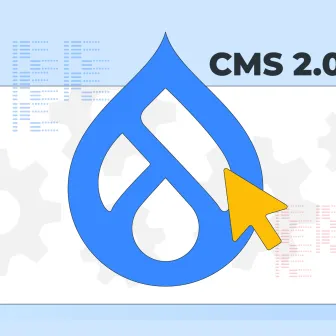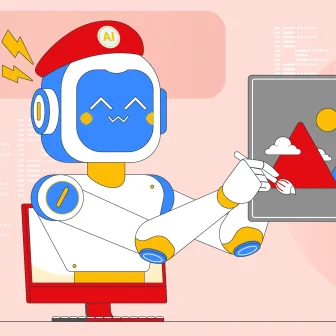Dries Buytaert, the Founder and Project Lead of Drupal, tweeted in 2016 asking, “What could a blockchain mean for a CMS like Drupal? #Brainstorm”. The hashtag delineates a palpable excitement in the air with the blockchain technology. It has only grown over time to become a part of serious talks in business conferences held world over.
Blockchain has made us reconceive our model of producing and consuming digital content. Drupal has been ruminating on the integration of its centralized architecture with the decentralized workflow of the blockchain. Tech world has been coming up with interesting prototypes and proposals for its implementation with Drupal.
Still, in its early stages, the rough path lies ahead for it to become a mainstay among the technical fraternity. It has to overcome some heavy-duty challenges to be accepted as a stable option in the years to come if not today.
The blockchain is, in itself, a vast subject to be explored. In this blog, we will accentuate on how can it work with Drupal.
What influence does Blockchain have on digital content?
Blockchain could be the least elucidated among the disruptive technologies in this digital world.
“In layman’s terms, what is “Blockchain Technology?" A question on Quora reads.
It is an immutable and distributed ledger technology which was originally developed as an accounting system for the cryptocurrency Bitcoin. To simply explain, it is a database structure that can be broken into ‘blocks’. These blocks include a ledger that shows a list of transactions and each of the new blocks is cryptographically linked to the previous one. Anything recorded on it cannot be changed or deleted and is instantly uploaded to all the users on the blockchain.

Blockchain creates a synergy among the content creators and the media consumers. Not only content producers get a transparent digital publishing platform that pays them fairly but also lets consumers directly support content creators.
A centralized platform of Youtube has the right to delete your entire video content or the channel itself. But a decentralized digital content platform based on blockchain will keep your content intact without making any changes to it. This way everything - content, number of views, user comments and ratings - remain secure.
So, how will blockchain leave an indelible mark in digital content distribution?
It supports micropayment system by processing a large number of transactions at a very low cost. This makes it possible to avoid subscription-based payment system. Content creators can charge per article. Or the consumers can pay per song.
The centralized workflow of digital publishers takes up a considerable chunk of content creators’ profits. In a blockchain based content distribution, content producers are paid as soon as the users pay for a download.
Your digital content is stored on CMS. Let’s see blockchain’s role in a CMS like Drupal.
How can Drupal and Blockchain work together?
There is a phalanx of differences between the workflows of blockchain and the Drupal. Drupal manages content on the web using a centralized database. In contrast, blockchain technology acts as a verification element which provides pseudonymous permissionless access to a distributed ledger and does not require a middleman.
Moreover, transactions in Drupal are explicit and irreversible while the same is implicit and reversible in the blockchain.
So, coming back to the question posed by Dries, Drupal has been exploring the possibility of integrating both these open source technologies to benefit technical fraternity at large.
One of the questions asked on Quora was “Are people doing content management with blockchain?”
Blockchain provides a slew of sops that can be implemented with Drupal to a great effect.
Bitcoin Blockchain
Bitcoin, one of the most important cryptocurrencies, works under blockchain principle. It can be used for transactions in place of banks, notaries, or accountants. But how can it work together with Drupal?
Drupal social intranet OpenLucius has mooted an idea that can effectively replace banks and improve transactions. It can have bitcoin blockchain working under the hood.
Its working principle was simple and transparent. Agreements will be made between the clients and the suppliers for a project delivery and recorded in a block with an agreed value. The nodes in blockchain will determine if the delivery was made as agreed.
Based on the confirmation that the transaction is approved, it is added to the unbreakable chain of the global ledger. The customer finally gets the project delivered to them as per initial agreement and the supplier gets the money. This is recorded in OpenLucius as well.
Ethereum Blockchain
Drupal Community wasn’t far behind to discuss the enormous possibilities. DrupalCon Baltimore and Vienna in 2017 propounded implementation of Ethereum Blockchain with Drupal.
These DrupalCon sessions discussed the ongoing development of integrating these open source technologies. It emphasized that Ethereum, a decentralized open source blockchain platform that runs smart contracts, can be integrated with Drupal into its user registry workflows.
Donkeymedia, a web development firm, devised an idea where Drupal and Ethereum blockchain could make great inroads in the way Non-Governmental Organisations (NGOs) work.
NGOs can publish a list of funding proposals on their Drupal site to permit their members to vote on the proposals. Donkeymedia proposed an implementation of a voting system in Drupal 8 that would require Ethereum accounts. This can be done using in-browser transaction signers like Metamask or Uport.
Implementation would first require the creation of user or blockchain identity registration using a smart contract. You need to log in to Drupal and make a request for your Blockchain account to get verified. Drupal will give you a hash that you need to add to the user registry by sending a transaction with Metamask or Uport. Drupal will verify and save the account ID.
Use case: Drupal and Blockchain
Chainfrog has been working on this technology since its early stages. They devised a use case where user data like communication history, addresses, or the profile data will be available to everyone in a large business enterprise. Big companies would want their Drupal user data to be synchronized and securely segregated. It does so by mapping user registration forms with a centralized company API.
Chainfrog, a blockchain based firm, realized the immense potential in the integration of their blockchain based product Blockbinder and Drupal.
They might have more than one Drupal installations for different departments within the organization with a central database. Instead of an expensive API layer, Chainfrog proposed synchronization of user data using Drupal 8 custom module via a distributed ledger. This is where their blockchain based product Blockbinder, that helps in connecting existing databases instantly, comes into action.
Instead of making an HTTP call everytime a new user is added, they planned to remove the middleman, in this case, API, and adopt a peer-to-peer immutable ledger. Every time a user is added to the Drupal system, Blockbinder would keep a tab on user records in a data table. This would ensure that all the Drupal installations inside a digital firm would synchronize their user data within 30 seconds of any new addition in one of their installations.
We have seen that there is huge excitement among the Drupal Community for blockchain. Some of them are already propounding prototypes that can prove beneficial. But the technical world is unsure of its future. Let’s find out.
Future of blockchain and the challenges ahead
Below is an image from Statista which discusses the size of blockchain technology market worldwide from 2016 to 2021 (in million U.S. Dollars)
How is it going to be a part of your company? Let’s go through few applications.
The Hindu, an Indian National Daily, reported that blockchain technology can help prevent frauds in the banks. The report included views of top banking officials and the results were staggering. They are already contemplating on incorporating it into their system. One of the banks even said that they have adopted it in their reconciliation systems already.
Blockchain is destined to build its salience over time.
Donkeymedia’s proposal, which we saw before, can improve governance in your company and nullify the presence of hierarchies. Every major business decision can be taken using a clear and transparent voting system. Everyone in the organization can vote on the proposals submitted in the form of contracts. If the proposals undergird the smart contract defining the company policies, then they are approved and taken further.
If your company does a lot of cross-border remittances, it is very likely that it may need the services of the blockchain. Without any intermediaries like banks that can slow down the transaction process, payments can be done directly between peers as agreed in the smart contract.
It can play a pivotal role in decentralizing the cloud storage. It will segregate your uploaded files into separate different smaller files and upload them on several devices on the network. Everything is recorded in the blockchain. So, if you want to retrieve that file, it will assemble those segregated files and restore it for you.
Some of the tech enthusiasts have also cast serious aspersions over the challenges that come along with its implementation.
There is a question of scalability. It allows a limited number of transactions and is not fast enough during a transaction process. Also, since we are using a public, easily traceable ledger, there are claims of limited privacy. Formal verification of smart contracts is the need of the hour as it does not allow any alteration once it is deployed.
Furthermore, data storage can prove to be a costly affair on a decentralized network as every full node has to store a cornucopia of data. Developing a decentralized application on blockchain is an uphill task due to limited availability of tools. Even the greatest of public key algorithms can be broken by a large number of quantum computers. Hence, anything you build on blockchain must be quantum-proof.
Summary
Blockchain can become the bedrock of digital content distribution. Content creators and media content consumers can both benefit by it.
Drupal Community has had a volte-face in their thinking and has started exploring options beyond a centralized world. Proposals for implementation of Drupal with blockchain technologies like bitcoin and Ethereum are being seriously considered.
The ball has been set rolling to address the challenges faced by this open source technology. The blockchain is destined to be placed on the highest pedestal by every company in the near future.
The wheel has turned a full circle. Now is the time to adopt this next big thing. To explore this innovative technology, reach us out here.
Subscribe
Related Blogs
Drupal's Role as an MCP Server: A Practical Guide for Developers

"The MCP provides a universal open standard that allows AI models to access real-world data sources securely without custom…
What’s New in Drupal CMS 2.0: A Complete Overview

"Drupal CMS 2.0 marks a significant change in the construction of Drupal websites, integrating visual site building, AI…
Drupal AI Ecosystem Part 6: ECA Module & Its Integration with AI

Modern Drupal sites demand automation, consistency, and predictable workflows. With Drupal’s ECA module, these capabilities…




